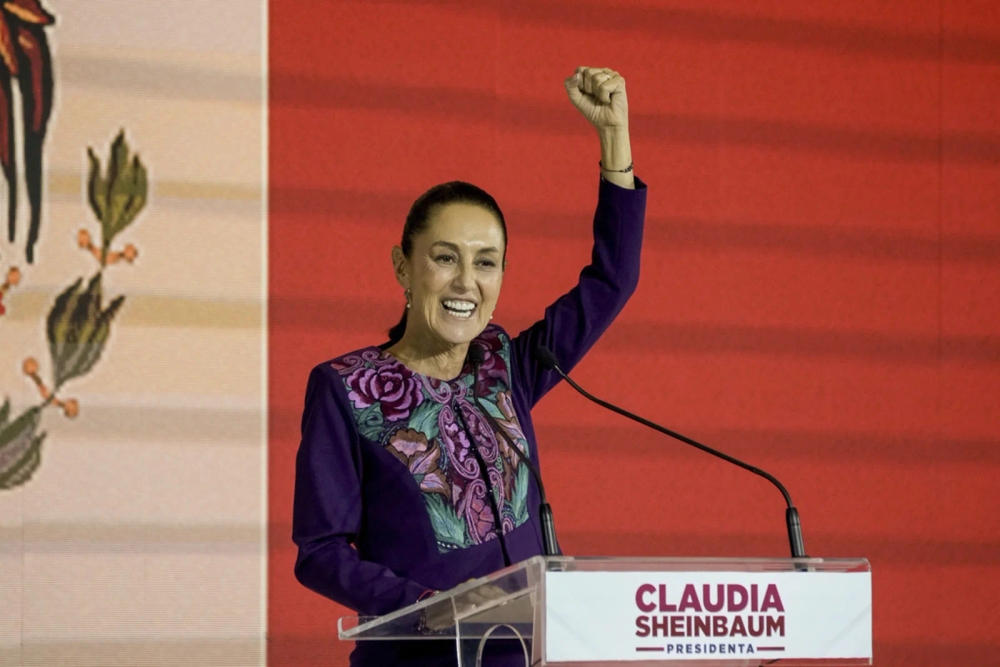Published
- 4 min read
Claudia Sheinbaum's Presidency: A Turning Point for U.S.-Mexico Relations?

Sheinbaum’s Security Strategy: A Shift from the Past
In a historic leap for Mexico, Claudia Sheinbaum has become the nation’s first female president, stepping into office during a tumultuous time. Her presidency not only signals a transformative shift for Mexico but also for its bilateral relations with its largest trading partner, the United States. With a focus on security cooperation and a robust approach to combat organized crime, Sheinbaum’s tenure could define a new chapter in U.S.-Mexico relations.
The Challenges at Hand
Mexico’s internal security is at a critical juncture, with emboldened cartels controlling vast territories and the fentanyl crisis posing a transnational threat. Meanwhile, U.S. President-elect Donald Trump has set a hardline tone, threatening tariffs and a potential renegotiation of the USMCA if Mexico fails to curb organized crime and migration.
Sheinbaum’s inaugural call with Trump highlighted their differing approaches: Trump emphasized border control and migration restrictions, while Sheinbaum advocated for collaborative governance. Despite these differences, her administration has demonstrated a willingness to tackle pressing issues, including drug trafficking and violence, in hopes of rebuilding mutual trust.
A New Approach to Security
Breaking away from the controversial “hugs, not bullets” strategy of her predecessor Andrés Manuel López Obrador (AMLO), Sheinbaum has unveiled a security framework centered on intelligence-led policing and inter-agency coordination. Central to this initiative is Omar García Harfuch, her newly appointed Secretary of Security and Civilian Protection, whose record of reducing crime in Mexico City has earned cautious optimism from U.S. agencies.
Under Sheinbaum’s leadership, security operations have already yielded significant results, such as the record-breaking seizure of over a ton of fentanyl pills. Targeted operations in Sinaloa signal a renewed effort to dismantle the powerful Sinaloa and Jalisco Nueva Generación cartels, key players in the fentanyl supply chain to the U.S.
Restoring Bilateral Trust
The relationship between U.S. and Mexican security agencies deteriorated under AMLO’s administration due to incidents such as the arrest of Mexico’s former Secretary of National Defense by U.S. agents and the controversial release of Ovidio Guzmán. Rebuilding trust will require concrete action from both sides.
The Bicentennial Framework for Security, Public Health, and Safe Communities, introduced in 2021, offers a foundation for cooperation, but its lack of measurable outcomes has limited its effectiveness. Sheinbaum’s administration has an opportunity to revitalize this framework or propose a new blueprint for collaboration, balancing Mexico’s sovereignty concerns with the U.S.’s national security priorities.
The Economic Stakes
Trump’s proposed 25% tariff on Mexican imports looms large, threatening to disrupt Mexico’s economy and its vital trade relationship with the U.S. The success of Sheinbaum’s security strategy could play a pivotal role in averting such punitive measures and maintaining the integrity of the USMCA.
Furthermore, the 2026 review of the trade agreement will serve as a litmus test for the health of U.S.-Mexico relations. Demonstrating progress in combating organized crime and addressing migration will be essential for Sheinbaum to secure favorable terms.
The Road Ahead
While Sheinbaum’s presidency brings hope for a stronger bilateral partnership, significant hurdles remain. Her administration must navigate Trump’s aggressive policies, repair fractured security cooperation, and deliver tangible results against organized crime. At the same time, Sheinbaum must address domestic challenges, including corruption, economic inequality, and cartel violence.
The stakes for U.S.-Mexico relations have never been higher. Success under Sheinbaum’s leadership could pave the way for a new era of collaboration and stability. Failure, however, could exacerbate tensions, with dire consequences for both nations.
A Cautious Optimism
Claudia Sheinbaum’s presidency represents a turning point in the complex relationship between the U.S. and Mexico. By prioritizing intelligence-driven strategies and fostering inter-agency trust, her government has taken initial steps to bridge the gap left by past administrations. While challenges persist, the potential for a transformative partnership remains within reach.
For both nations, the coming years will determine whether this pivotal moment serves as a bridge to cooperation or a descent into further discord.
